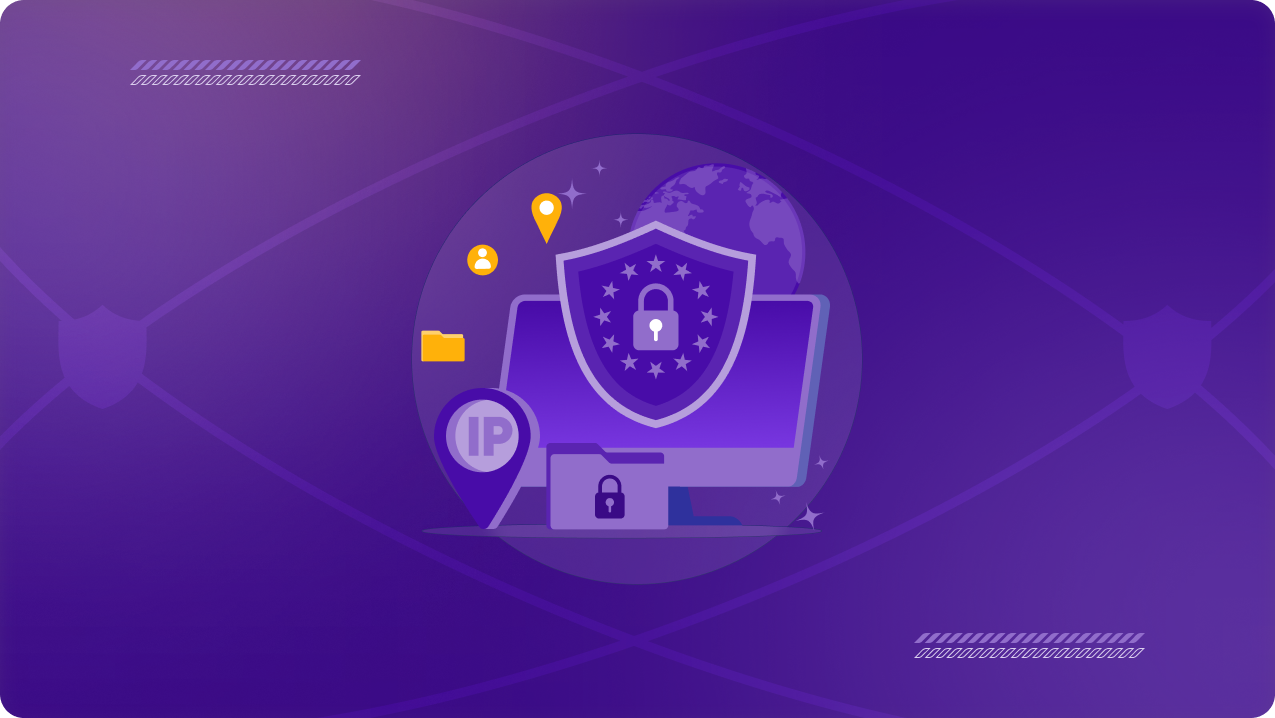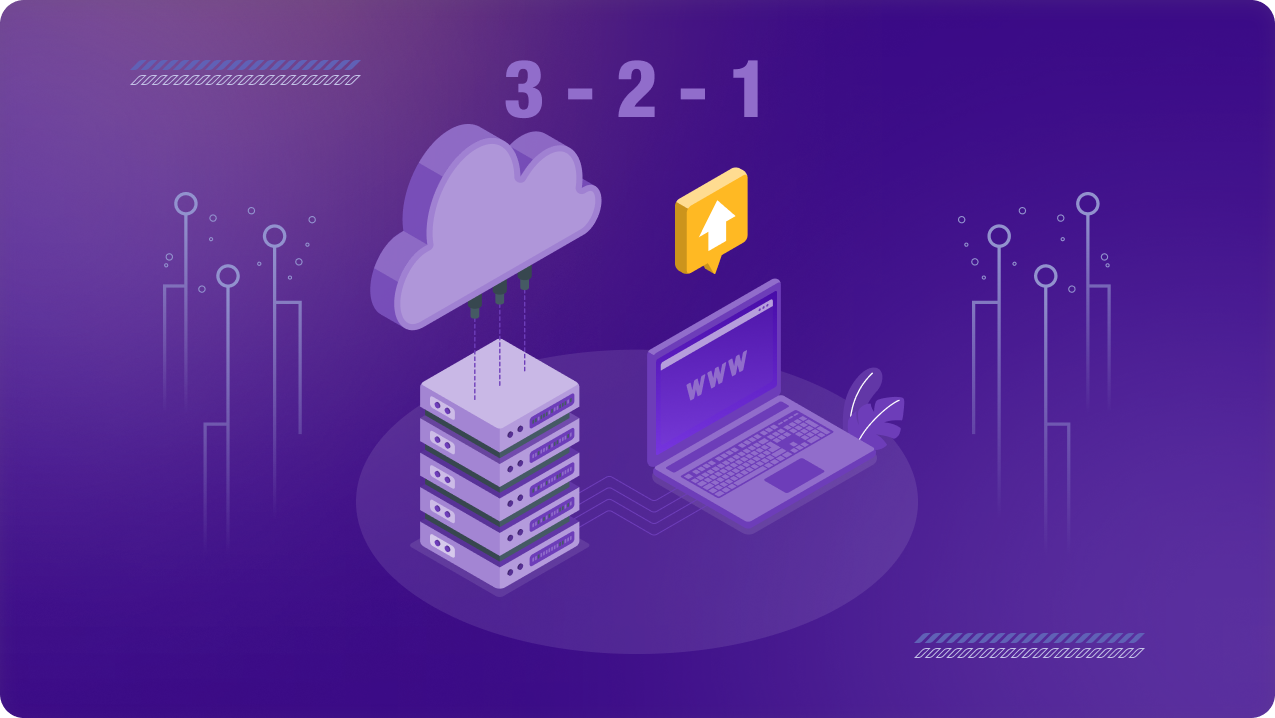Table of Contents
Did you know that 43% of cyberattacks target small businesses, yet only 14% are prepared to defend themselves? Or that 60% of small companies go out of business within six months of a cyberattack?
If these statistics made you pause, you’re not alone. Businesses – especially small and medium-sized enterprises (SMBs) – are increasingly vulnerable to cyber threats. With remote work becoming the norm, endpoints like laptops, smartphones, and tablets have become the new battleground for cybersecurity.
But here’s the real question: Is your business doing enough to protect its endpoints?
In this article, we’ll walk you through a practical roadmap for building a strong endpoint protection strategy. Plus, we’ll show you how integrating a business VPN like PureVPN for Teams can help you tackle one of the biggest challenges in modern cybersecurity, i.e., securing remote work.
Why Endpoint Protection Should Be Business’s Top Priority
Endpoints such as laptops, smartphones, tablets, and other devices, are the weakest link in your business’s security chain. Wondering why? Because they’re everywhere.
Employees use them to access company resources from home, coffee shops, airports, and co-working spaces. Each of these connections is a potential entry point for cybercriminals.
Think about it:
- How many of your employees use public WiFi to check work emails or access cloud-based tools?
- How often do they log into company systems using passwords that might not be as strong as they should be?
- What happens if a device is lost or stolen, and sensitive data falls into the wrong hands?
These aren’t hypothetical scenarios. They’re everyday risks that businesses face. According to Verizon’s Data Breach Investigations Report (DBIR), small businesses were affected by 699 cybersecurity incidents last year, with 227 confirmed data breaches.
While antivirus software and firewalls play a role in security, they are not enough. The endpoint threat landscape is constantly evolving. Cybercriminals are employing increasingly sophisticated tactics, from malware and phishing attacks to ransomware and zero-day exploits. The rise of remote work has further expanded the attack surface, making endpoint protection even more critical.
Businesses must adopt a proactive and multi-layered approach to defend against these threats.
Key Components of a Comprehensive Endpoint Protection Strategy
An endpoint protection strategy encompasses several key components. A crucial, often overlooked, component is taking advantage of advanced tools and premium business VPN solutions, especially in today’s hybrid and remote work environments.
- Antivirus and Anti-Malware: Traditional antivirus software remains essential for detecting and removing known malware. However, it’s crucial to use solutions that incorporate advanced techniques like behavioral analysis and machine learning to combat evolving threats.
- Firewall Protection: Firewalls act as a barrier between your network and external threats, controlling network traffic and preventing unauthorized access. Endpoint firewalls provide an additional layer of protection for individual devices.
- Endpoint Detection and Response (EDR): EDR solutions monitor endpoint activity, detect suspicious behavior, and provide tools for incident response. They enable you to quickly identify and contain threats before they can cause significant damage.
- Data Loss Prevention (DLP): DLP solutions prevent sensitive data from leaving your control, whether intentionally or accidentally. They can monitor data in transit, at rest, and in use, and block unauthorized data exfiltration.
- Vulnerability Management: Regularly scanning endpoints for vulnerabilities and patching them promptly is crucial. Vulnerability management tools help you identify and prioritize vulnerabilities, ensuring that your systems are up-to-date.
- Centralized Management: Effective endpoint protection requires streamlined administration and control. A great way to centrally control user access and ensure remote security is integrating a business VPN like PureVPN for Teams within your existing network.
PureVPN for Teams offers a centralized admin dashboard that allows you to easily add up to 200 members to your plan and manage VPN access for all your team members. This simplifies onboarding and offboarding, ensuring that only authorized users have access to your network and resources. It also allows for consistent security policy enforcement across all devices.
- Dedicated IPs for Enhanced Security: Maintaining a consistent and secure online presence is crucial for protecting sensitive data and applications. Dedicated IPs provide a consistent and secure online presence for remote workers, reducing the risk of being flagged as suspicious.
This is particularly important for accessing sensitive business applications and resources. A trustworthy business VPN such as PureVPN for Teams allows businesses to provision Dedicated IPs. It also allows businesses to assign one IP through Team Servers to facilitate secure collaboration among team members.
Building a Comprehensive Endpoint Protection Strategy
To stay ahead of cyber threats, businesses must integrate a layered endpoint security approach. Here’s a strategic roadmap to secure endpoints effectively for hybrid and remote teams:
- Identify and Classify Endpoints
Before implementing security measures, you need to understand what you’re protecting. Identify all endpoints within your network – laptops, desktops, mobile devices, servers, and IoT devices. Classify them based on their access levels and potential vulnerabilities to prioritize protection efforts effectively.
- Enforce Strong Access Controls
Implement multi-factor authentication (MFA) and role-based access controls (RBAC) to ensure that only authorized users can access critical systems. Besides this, businesses can also make a reliable business VPN a part of their endpoint security strategy to minimize the risk of unauthorized access and insider threats.
- Secure Sensitive Data with Encryption
One of the most critical aspects of endpoint security is encrypting sensitive business data. It’s a cornerstone of data security, protecting sensitive information from breaches and ensuring confidentiality. Strong encryption is essential for both data at rest (stored on devices) and data in transit (sent across networks).
A Business VPN like PureVPN for Teams ensures end-to-end encryption, securing communications and data transfers between remote employees and internal networks. By masking IP addresses and routing traffic through secure servers, businesses can prevent unauthorized access, man-in-the-middle attacks, and data leaks.
- Implement Next-Gen Endpoint Protection Software
Traditional antivirus solutions are no longer enough. Deploy next-generation endpoint security solutions that utilize AI-driven threat detection, behavioral analysis, and real-time monitoring to combat zero-day attacks and advanced persistent threats (APTs).
- Regularly Update and Patch Software
Unpatched software is a major entry point for cybercriminals. Establish an automated patch management system to keep all operating systems, applications, and firmware up to date, closing security gaps before they can be exploited.
- Educate Employees on Cybersecurity Best Practices
Your employees are your first line of defense. Conduct regular security awareness training on phishing scams, password hygiene, and safe browsing habits. Encourage the use of password managers and zero-trust principles to enhance security awareness.
- Monitor and Respond to Security Threats in Real-Time
Deploy Security Information and Event Management (SIEM) systems to collect and analyze security data. Implement endpoint detection and response (EDR) solutions to detect and neutralize threats before they escalate. Having an incident response plan in place ensures swift action in case of a breach.
- Conduct Routine Security Audits and Penetration Testing
Regularly audit your security infrastructure and conduct penetration testing to uncover vulnerabilities. Simulating attack scenarios helps businesses proactively strengthen their defenses and comply with regulatory standards.
Embracing an Endpoint Security Approach
Comprehensive endpoint protection is not just about technology; it’s about creating a culture of security within your organization. Also, endpoint security is an ongoing process that requires continuous monitoring and adaptation. By following the roadmap outlined above and leveraging tools like PureVPN for Teams, you can build a strong defense against cyber threats.
In a world where remote work is here to stay, securing your endpoints is no longer a luxury – it’s a business imperative. Don’t wait for a breach to happen. Take proactive steps today to protect your business and ensure its long-term success.





